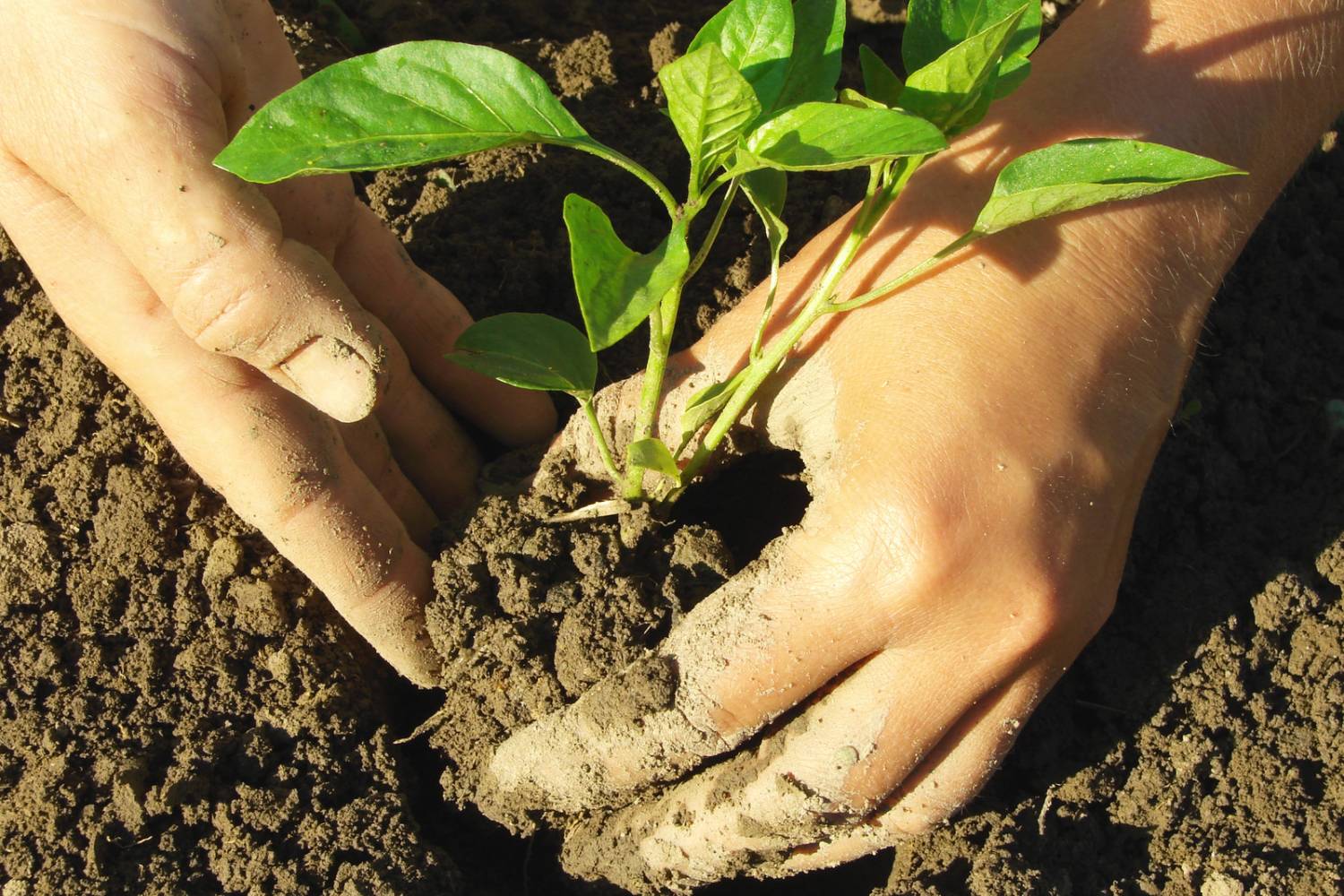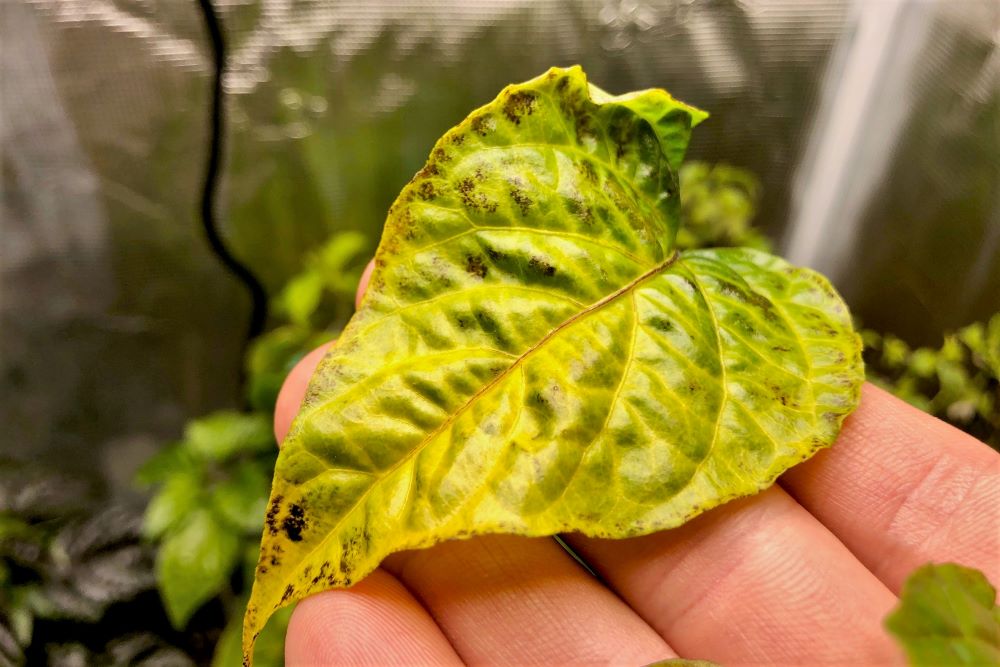Discover the Best Fertilizers for Peppers: Vital Nutrients for Thriving Plants
Discover the Best Fertilizers for Peppers: Vital Nutrients for Thriving Plants
Blog Article
Just How Fertilizers Play an Essential Function in Growing Healthy And Balanced and Plentiful Pepper Crops
Plant foods serve as the backbone of successful pepper farming, offering a critical approach to nourishing the dirt and cultivating optimal plant growth. The intricate dance in between crucial nutrients and the pepper plants' physiological procedures emphasizes the crucial role that plant foods play in guaranteeing an abundant harvest.
Relevance of Nutrient-Rich Plant Foods
The use of nutrient-rich plant foods plays a crucial duty in improving the efficiency and high quality of pepper plants in contemporary agricultural techniques. Pepper plants require a balanced combination of crucial nutrients to flourish and create high returns of high quality fruits. Phosphorus, nitrogen, and potassium are main nutrients that are essential for the development and development of pepper plants. Nitrogen aids in leafed environment-friendly growth and overall plant vigor, phosphorus sustains origin growth and flower production, while potassium adds to illness resistance and fruit top quality.
Poor levels of these nutrients can cause stunted development, decreased yields, and sensitivity to diseases (best fertilizers for peppers). Nutrient-rich plant foods give a targeted option to guarantee that pepper plants obtain the needed components for optimum development and performance. Furthermore, these plant foods help improve dirt fertility over time, producing a sustainable atmosphere for lasting pepper growing
Enhancing Plant Growth and Development
To optimize plant growth and growth in pepper crops, tactical application of nutrient-rich fertilizers is necessary. Plant foods play a vital function in boosting the total wellness and performance of pepper plants by supplying them with important nutrients that may be lacking in the dirt. Nitrogen, phosphorus, and potassium are main macronutrients called for in large quantities by peppers for durable growth. Nitrogen help in leafed eco-friendly growth and overall plant vitality, phosphorus sustains origin advancement and flower development, while potassium adds to illness resistance and fruit quality.
In addition to these macronutrients, trace elements such as magnesium, zinc, and iron are additionally important for the correct performance of different plant processes. Iron, for circumstances, is required for chlorophyll production, which is vital for photosynthesis and total plant development. Zinc plays a vital function in enzyme task and hormone synthesis, influencing plant development and development at a cellular degree. Magnesium is essential for the development of chlorophyll and general power transfer within the plant.

Boosting Condition Resistance With Fertilizers
By purposefully incorporating targeted fertilizers, farmers can boost the illness resistance of pepper crops, ensuring ideal plant health and efficiency. Fertilizers having important nutrients like potassium, phosphorus, and nitrogen play a critical role in strengthening pepper plants' immune systems, making them much more resistant to numerous diseases.

Maximizing Pepper Return Through Fertilizing
Using a well balanced fertilizing approach is vital to attaining maximum pepper yield and making sure optimal crop productivity. By giving peppers with the right nutrients at the correct time, farmers can considerably improve their return capacity. Potassium, phosphorus, and nitrogen are important components for pepper growth, with nitrogen assisting in leaf and stem growth, phosphorus sustaining root development and flower formation, and potassium advertising general plant health.
To take full advantage of pepper yield, it is vital to carry out dirt tests to identify existing nutrient degrees and determine any type of shortages that need to be addressed. Based upon these outcomes, farmers can develop a customized fertilization plan that meets the certain demands of their pepper crops. Additionally, correct fertilization methods such as split applications throughout the growing period can guarantee other continuous nutrition schedule for the More about the author plants.

Sustainable Plant Food Practices for Peppers
In taking into consideration lasting plant food techniques for peppers, it is critical to concentrate on long-lasting soil wellness and ecological stewardship in conjunction with making best use of crop performance. One vital technique is the use of natural plant foods such as garden compost, manure, or cover crops, which not only supply essential nutrients to the peppers yet additionally add to dirt structure and microbial activity. best fertilizers for peppers.
In addition, accuracy farming methods, such as soil screening and targeted nutrient applications, can help optimize fertilizer use, guaranteeing that peppers obtain the nutrients they need without excess drainage into waterways. This not only benefits the setting by decreasing air pollution but additionally conserves prices for farmers by decreasing waste. By adopting sustainable plant food practices, pepper growers can guard the health and wellness of their plants, soil, and surrounding ecosystems for future generations.
Verdict
Finally, plant foods are necessary for growing healthy and balanced and abundant pepper plants. best fertilizers for peppers. They give needed nutrients for plant growth and development, boost disease resistance, and take full advantage of return. By executing lasting fertilizer practices, farmers can make certain the long-term health and wellness of their pepper crops and add to an extra effective and environmentally-friendly farming system
The intricate dancing in between important nutrients and the pepper plants' physical procedures underscores the critical duty that plant foods play in making certain a bountiful harvest.To enhance plant growth and advancement in pepper plants, tactical application of nutrient-rich plant foods is crucial. Plant foods play Look At This a vital function in improving the total health and wellness and performance of pepper plants by offering them with essential nutrients that might be lacking in the soil.By purposefully incorporating targeted fertilizers, farmers can reinforce the disease resistance of pepper plants, ensuring optimal plant wellness and performance. Plant foods including vital nutrients like potassium, nitrogen, and phosphorus play a crucial duty in enhancing pepper plants' immune systems, making them extra resistant to numerous illness.
Report this page